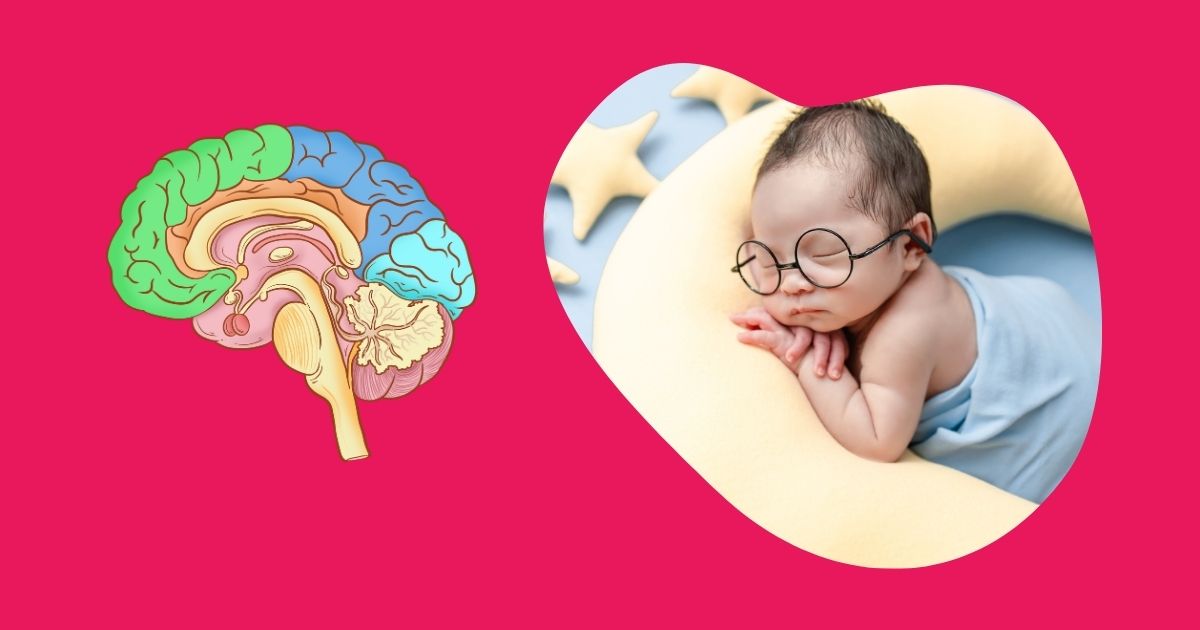Early Signs of Autism in Babies – A Guide for Parents
Autism spectrum disorder (ASD) is a developmental condition that can affect social communication, behavior, and sensory processing. While a diagnosis is typically made later in childhood, some signs may appear in babies as young as 6 months old. This can be unclear for parents, but knowing the potential signs can help you get your child the support they need early on.

Important Disclaimer
It’s crucial to remember that these are just potential indicators, and not all babies who exhibit some of these signs will have autism. If you have concerns about your baby’s development, consult a healthcare professional for a proper evaluation. Early intervention is key for children with ASD, and a pediatrician or developmental specialist can guide you through the process.
Social Communication Cues
- Limited Eye Contact – Eye contact is a fundamental aspect of social interaction. Babies who rarely make eye contact or seem to look past or through you may be showing an early sign of autism.
- Reduced Social Smiles – Babies typically light up with a smile in response to their caregiver’s smile. If your baby smiles infrequently during social interactions, it could cause concern.
- Lack of Sharing Vocalizations – Around 6 months, babies often start babbling and cooing. If your baby seems quiet and doesn’t engage in this type of vocalization, it might be a sign of delayed social communication.
- Disinterest in Sharing Attention (Joint Attention) – Does your baby struggle to follow your gaze when you point at something interesting? Joint attention is an essential developmental milestone when a baby and caregiver focus on the same object or event. Pay attention to whether your baby seems interested in this shared experience.
- Delayed or Unusual Speech Patterns – While all babies develop at their own pace, a noticeable lack of babbling by 9 months or limited babbling with no progression towards first words by 12 months could be a red flag. Similarly, if your baby speaks but primarily echoes sounds or phrases without using them communicatively, it’s worth mentioning to your pediatrician.
Play and Interaction
- Limited or Absent Babbling and Gestures – Babies naturally communicate using sounds, facial expressions, and gestures. It could be a sign of delayed development if your baby doesn’t babble, coo, or use gestures like pointing or reaching.
- Disinterest in Social Games – Peek-a-boo, patty-cake, and other interactive games are fun for most babies. If your baby seems disinterested in these playful interactions, it might be a cause for concern.
- Preference for Solitary Play – While all babies enjoy some solo play, a strong preference for being alone and a lack of interest in interacting with others could be an early sign of autism.
- Repetitive Behaviors – Does your baby rock back and forth, flap their hands, or line up toys in a specific way? Repetitive behaviors are common in babies, but if they become excessive or interfere with development, it’s worth mentioning to your doctor.
- Unusual Attachment to Objects – Some babies become very attached to specific objects. Still, if your baby seems overly fixated on a particular item and gets very distressed if it’s taken away, it could be a sign of autism.
Sensory Processing
- Overreaction or Underreaction to Sounds – Some babies with autism may be very sensitive to loud noises or certain sounds, while others may not seem to register sounds at all. Pay attention to your baby’s reaction to different auditory stimuli.
- Unusual Responses to Touch – Aversion to touch is a common sign of autism in babies. They may resist cuddling, become distressed when diapered, or show a general dislike of physical contact.
- Sensitivity to Light – Some babies with autism may be very sensitive to bright lights or specific lighting conditions.
Assessment
- Diagnosis – Typically made in childhood, but signs may appear in babies as young as 6 months.
- Process – Involves a comprehensive evaluation by a team of specialists, often including a pediatrician, developmental specialist, and psychologist.
- Screening – Recommended for all children at specific ages during well-child visits.
Care
- Early intervention – Crucial for maximizing a child’s development.
- Therapies – Speech therapy, occupational therapy, applied behavioral analysis (ABA), and social skills training may be included.
- Support – Available for individuals and families throughout life. Resources can consist of educational support, social groups, and vocational training.
Remember
These are just some potential signs, and the presence of a few doesn’t necessarily mean your baby has autism. However, if you have concerns based on several of these indicators, discuss them with your pediatrician. Early intervention is crucial for children with autism, and a healthcare professional can help you get the resources and support your baby needs to thrive.
Important Reminders for Parents
- These are potential signs, not a diagnosis. Every child develops at their own pace. If you have concerns, discuss them with your pediatrician.
Early intervention is crucial. If your child has autism, getting them support early can make a significant difference in their development. - Early intervention is crucial. If your child has autism, getting them support early can make a significant difference in their development.